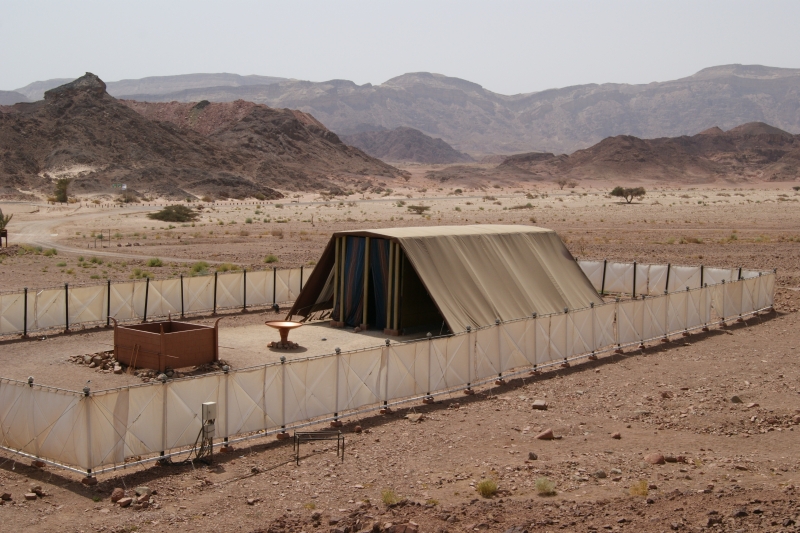According to all that the Lord had commanded Moses, so the people of Israel had done all the work. And Moses saw all the work, and behold, they had done it; as the Lord commanded, so they had done it. Ex. 39:42-43
Reading those words, do you hear an echo?
And God saw everything that he had made, and behold, it was very good . . .
And Moses saw . . .
From the beginning of Genesis to the end of Exodus encloses a lot of history—much more than any other Bible time-period. From prehistory all the way up to the birth of a nation, the LORD is building a grand plot. From the promised seed, through the flood, Father Abraham, the 12 patriarchs who grew into a multitude now gathered on a desert plain, the question is, Will they take Yahweh to be their lawfully wedded husband?
He covenants with them, he feeds and shepherds them, he instructs and promises to live with them. And then they fall into a terrible act of apostasy that should have ended it all. The people go back on their word just days after swearing to it. Even while Moses is on the mountain receiving instruction on how to consecrate Aaron as chief priest, Aaron is down on the plain hammering out a golden calf.
Doesn’t God know what’s going on, even while giving detailed instructions about how to build his dwelling place? Of course he does. But he waits, allowing the measure of sin to fill up on. And then he storms upon the scene, threatening to destroy his people. Moses intervenes for him, using every persuasive argument that comes to mind, until the Lord “changes his mind.” I won’t go with you/ I will go with you/ I will destroy them/ I won’t destroy them.
(This back-and-forth echoes a long-ago conversation with Abraham, who bargains with the Lord until he gets the acceptable number of righteous men needed to preserve Sodom down to ten. It’s not enough, of course; not even ten righteous men can be found in Sodom, and nephew Lot’s righteousness-status is rather iffy. But that doesn’t mean God is merely humoring Abraham in this conversation. He’s God; he knows the outcome. But he is also an active participant in the story, along with Abraham. The play is written, but that makes it no less compelling or real. God “changes his mind” according to what he’s already determined.)

Anyway. After this great trauma, with a people properly repentant and eager to make amends, the tabernacle work goes forward. Sixteen times in chapters 39 and 40 comes the phrase, “as the Lord commanded Moses.” As though there is to be no doubt that they’ve learned a lesson—for now—and “All that the Lord commands, we will do.” At the end, they’ve constructed a dwelling place that follows the blueprint to the letter.
But is it “good”? At the end of Creation, God saw all that he had made and pronounced it good. At the conclusion of tabernacle construction, Moses surveys the work and declares it “done.”
Is it good? No, but it’s done, according to God’s command. One more step toward redemption is accomplished. After the golden calf disaster and the recriminations and accusations and consequences dealt, God will still dwell with his people. Because he’s committed. What could have been the finale instead becomes a major plot point in the continuing drama.
But do you hear another echo?
It is finished.
It was good at the beginning. It was done as a temporary expedient, and kept on being “done” through a first temple, a second temple, and a third temple; through major dissolutions and reformations, countless animal sacrifices and rivers of blood.
Now it’s finished: the plot wraps up.
But it also continues, in present tense. We live in the dénouement, or “falling action,” of the great story that came to a climax when the main character walked out the grave . He had solved the unresolved tension between man and God—that is finished. The uneasy debt is paid. But each generation experiences that “finishing” for itself as the drama plays out again over millions of individual lives. And he’s just as involved and active as he ever was, only through his Holy Spirit at work in every reborn soul.
For there’s no more back-and-forth, no more bargaining. For each one of us, it is finished: in present tense, until we reach the final page.

Amen! He is risen and come soon, Oh Lord!